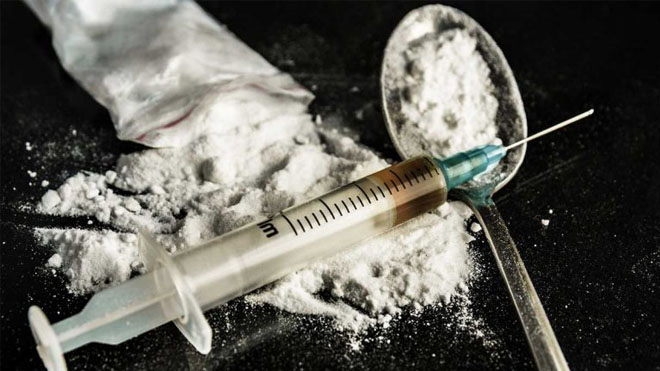The Food and Drugs Authority (FDA) has undertaken a market swoop in some parts of the Upper West Region to uproot activities of drug peddling.
Upon reports of drug peddling in various markets in the Nadowli-Kaleo District, the Upper West Regional offices of the FDA and the Pharmacy Council, as well as the Regional Command of the Ghana Police Service, organised a market swoop to curtail the illegal activity.
Section 130 (1) of the Public Health Act 2012, Act 851 says drugs or products regulated by the Authority should not be manufactured, sold, supplied, or stored in a premise not registered for that purpose.
In a telephone interview with Mr Albert Ankomah, the Head of FDA in the Upper West Region, he said the information came from Ms Delesse Mimi Darko, the Chief Executive Officer of FDA, upon which he acted.
He said the market swoops, conducted on September 9, 15 and 30, 2020 in five markets found seven peddlers, who were busily engaged selling the drugs in the open market to the unsuspecting public.
He said the team found that most of the drugs, even though were licensed by the FDA, including analgesics, anthelminthic, antimalarial, antitussives, and aphrodisiacs, were supposed to be sold by licensed chemical shops or pharmacies and not by peddlers.
He said some had been warned while others had been processed for court to serve as a deterrent and warned the public to desist from patronising drugs from peddlers because of the harmful effects of such drugs.
Mr Ankomah said the FDA would continue to collaborate with the Regional Office of the Pharmacy Council with support from the Police to extend the exercise to the remaining eight districts of the region.
He said the FDA would add to its routine public education programmes to sensitise the public on the dangers of patronising the services of drug peddlers and urged consumers to purchase their drugs from licensed chemical shops or pharmacies.
Mr Lateef Agyei-Wiredu, Upper West Regional Manager, Pharmacy Council, in another interview, said the activities of peddling had been reduced since the Council decided to take action against it in 2014.
He said to bring sanity into the system the Council decided to train and license some of them to operate from appropriate facilities adding that currently more than 300 registered over the counter medicine sellers (OCMS) were operating in the region.
That would ensure that medicines were properly stored and dispensed to the consumer in a standardised manner to avoid the dangers associated with mishandling of same, Mr Agyei-Wiredu said.
He urged the public to ensure that prescribed medicines were acquired from a pharmacy or registered OCMSs because medicines were globally regulated commodities.
He said some medicines may become poison once they were not kept well or properly dispensed, adding that buying from a pharmacy or registered OCMS was lawful and would also help to easily trace if any side-effect occurred.
Latest Stories
-
Samsung’s AI-powered innovations honored by Consumer Technology Association
17 mins -
Fugitive Zambian MP arrested in Zimbabwe – minister
35 mins -
Town council in Canada at standstill over refusal to take King’s oath
46 mins -
Trump picks Pam Bondi as attorney general after Matt Gaetz withdraws
58 mins -
Providing quality seeds to farmers is first step towards achieving food security in Ghana
1 hour -
Gary Gensler to leave role as SEC chairman
2 hours -
Contraceptive pills recalled in South Africa after mix-up
2 hours -
Patient sues Algerian author over claims he used her in novel
2 hours -
Kenya’s president cancels major deals with Adani Group
2 hours -
COP29: Africa urged to invest in youth to lead fight against climate change
2 hours -
How Kenya’s evangelical president has fallen out with churches
2 hours -
‘Restoring forests or ravaging Ghana’s green heritage?’ – Coalition questions Akufo-Addo’s COP 29 claims
3 hours -
Ensuring peaceful elections: A call for justice and fairness in Ghana
4 hours -
Inside South Africa’s ‘ruthless’ gang-controlled gold mines
4 hours -
Give direct access to Global Health Fund – Civil Society calls allocations
4 hours

